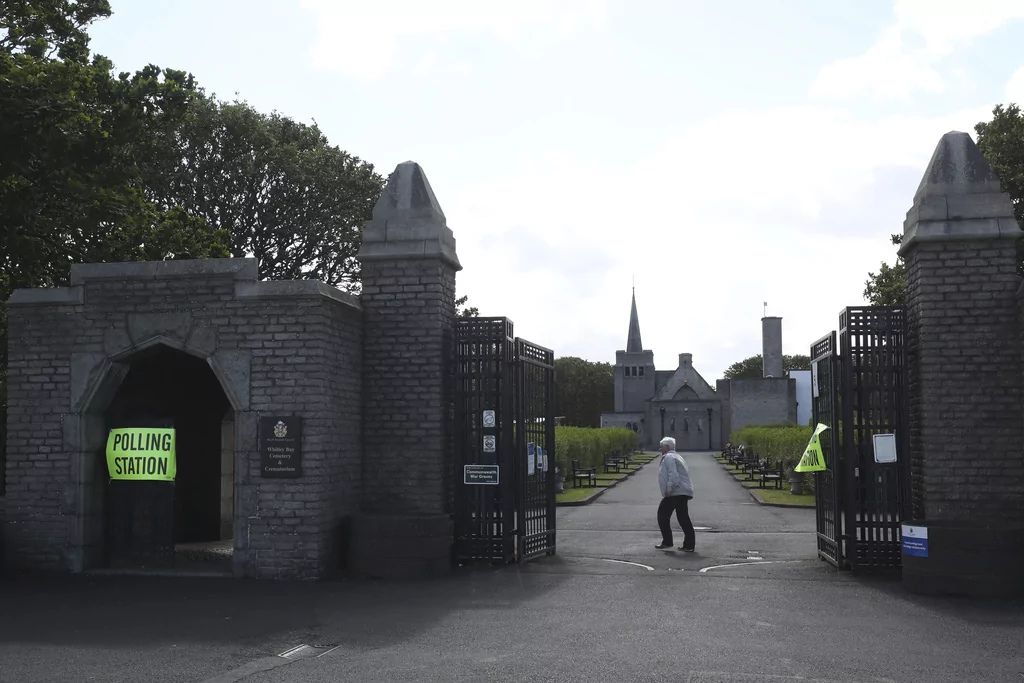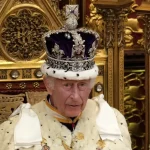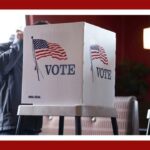
For the first time ever, people voting in Thursday’s U.K. general election must bring an accepted photo ID to have their ballot counted.
The general election is a pivotal moment for Britain and could see the Conservative Party lose control after 14 years in power.

The outcome will also have an effect on the United States. The U.K. is considered Washington’s closest ally, has a nuclear arsenal, a permanent seat on the United Nations Security Council, and the world’s sixth largest economy.
The last full parliamentary election was in December 2019, when Boris Johnson scored a massive win for the Conservative Party, promising to “Get Brexit done” after the country’s decision to leave the European Union in a 2016 referendum.
Thursday’s vote is expected to swing the pendulum in a different direction, delivering a landslide for the Labour Party, which has not won a general election since Tony Blair in 2005.
Mandates that voters must bring photographic identification has been a source of controversy, as it is in the U.S.
Parliament passed the Elections Act in April 2022. Voter ID has been required in many locations, but Thursday’s election marks the first time the ID requirements are in place for a general election following Prime Minister Rishi Sunak’s announcement of a snap vote at the end of May.
The voter ID laws were pitched, as in red states, as a way to crack down on voter fraud and promote election integrity.
It “means we can eliminate election fraud and make elections more inclusive, ensuring that everyone eligible to vote will continue to have the opportunity to do so,” said Kemi Badenoch, secretary of state for business and trade.
But critics claim voter ID rules are a way to suppress the vote and that cases of electoral fraud are rare. Between 2018 and 2022, only 11 of the 1,386 alleged cases of electoral fraud led to convictions, according to the latest data from the Electoral Commission.
Critics also argue that voter ID laws unfairly target marginalized communities’ ability to vote. They point to a 2021 government-commissioned study that found people with limiting disabilities, those who are unemployed, or have never voted before are less likely to have a valid form of photo ID needed to vote.
The Independent also cited research presented to the House of Commons that said the new laws could result in more than 1 million people sitting out the election.
“As there is no justification for this threat to the right to vote, it feels like an opportunistic attack on the rights of some of the most marginalized people in society,” said a spokesperson for Liberty, a human rights advocacy group. “A classic example of ruling through division and distrust.”
In the U.S., the fight over voter ID laws has yielded similar arguments.
According to the National Conference of State Legislatures, eight states — Arkansas, Idaho, Missouri, Montana, Nebraska, North Carolina, Ohio, and Wyoming — have enacted voter ID laws since the past presidential election. The changes are expected to affect 29 million adults. One of every six of those voters affected lives in battleground states.
In all, 37 states have laws requiring voters to show some form of identification at the polls, while the other 13 and Washington, D.C., allow other methods to identify voters, including bank statements, utility bills, and sworn affidavits.
“Voter ID laws are actually a barrier because not everyone has an ID, and the people who tend not to have identification tend to be those who are people of color, people with disabilities, people who are returning citizens, and some of our most vulnerable communities who we really want to ensure have full access to participate in the fabric of our society,” Maryland Democratic Del. Jheanelle Wilkins said during “State of Play,” a bipartisan video series produced by NCSL.
CLICK HERE TO READ MORE FROM RHE WASHINGTON EXAMINER
North Carolina Republican Sen. Warren Daniel took a different approach, arguing voter ID laws are “a good way to enhance voter confidence.”
“In North Carolina, we have expansive opportunities to vote,” he said. “We have one of the longest early voting periods in the country. We have one of the longest absentee/mail-in voting processes in the country.”






